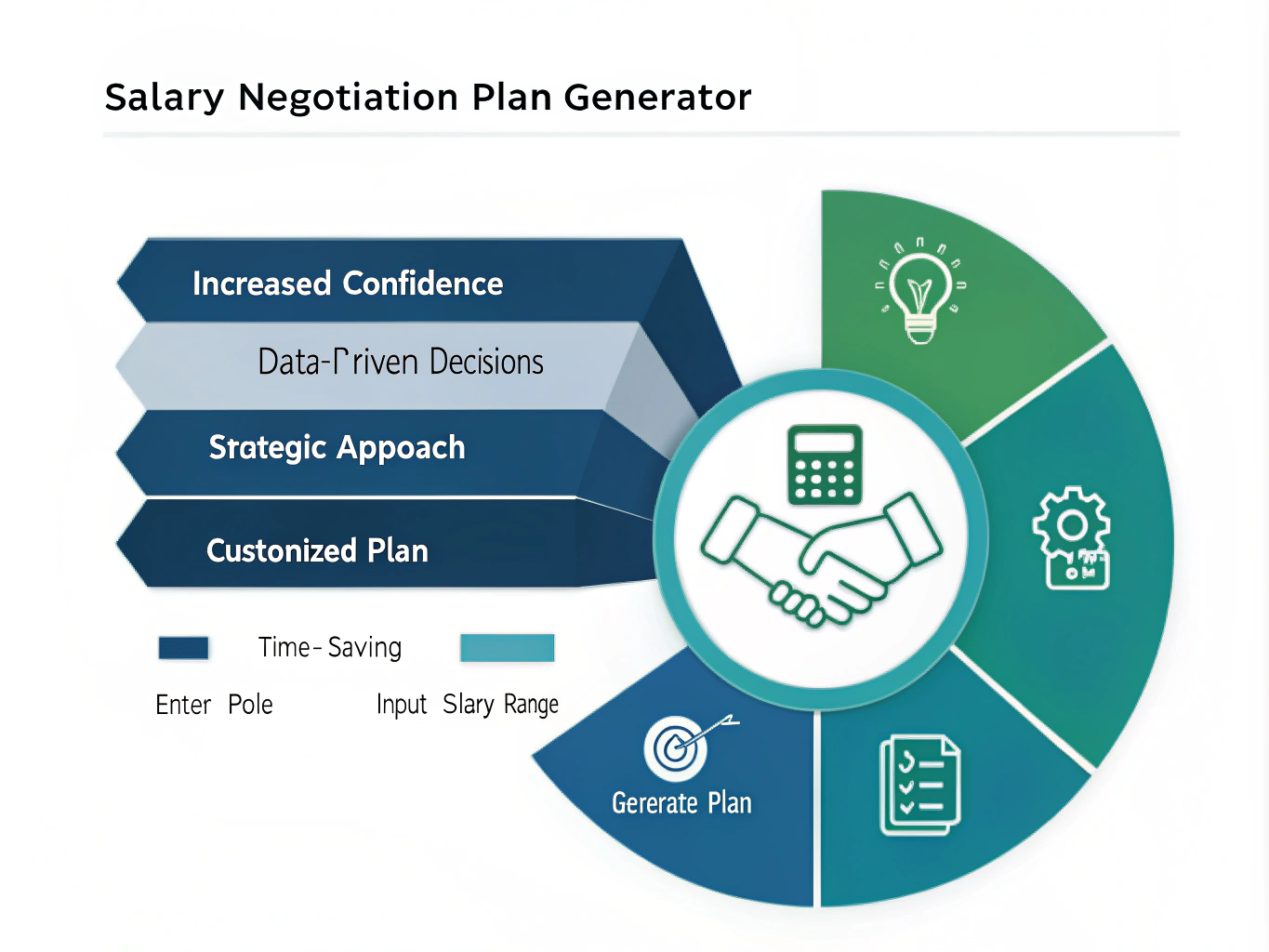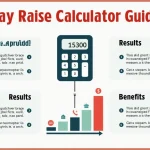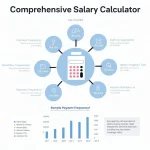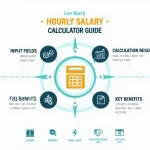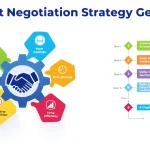Is this tool helpful?
How to Use the Salary Negotiation Plan Generator Effectively
The Salary Negotiation Plan Generator is a powerful tool designed to help job seekers confidently negotiate their salaries. To use this tool effectively, follow these simple steps:
- Enter the job role: In the first field, input the specific job title for which you’re negotiating. For example, “Senior Marketing Manager” or “Data Scientist”.
- Input the offered salary: In the second field, enter the salary that has been offered to you in USD. For instance, if you’ve been offered $90,000, simply type “90000” (without quotation marks or commas).
- Specify your desired salary: In the third field, enter the salary you’re aiming for in USD. For example, if you’re hoping to negotiate for $105,000, input “105000”.
- Generate your plan: Click the “Generate Salary Negotiation Plan” button to create your personalized strategy.
- Review and implement: Once generated, carefully read through the plan, which includes market research, a step-by-step negotiation strategy, and a summary of key points.
Remember, the more accurate and specific your inputs are, the more tailored and effective your negotiation plan will be.
Understanding the Salary Negotiation Plan Generator: Your Path to Better Compensation
In today’s competitive job market, the ability to effectively negotiate your salary can significantly impact your career trajectory and financial well-being. The Salary Negotiation Plan Generator is an innovative tool designed to empower job seekers with a personalized, data-driven approach to salary negotiations.
This tool combines market research, strategic planning, and expert negotiation techniques to create a comprehensive plan tailored to your specific situation. By leveraging this generator, you’re not just preparing for a conversation; you’re arming yourself with a powerful strategy to maximize your earning potential.
Key Features of the Salary Negotiation Plan Generator
- Market Research: Provides up-to-date salary statistics for your specific role
- Step-by-Step Strategy: Outlines a detailed negotiation plan with example scripts
- Objection Handling: Prepares you for potential pushback from employers
- Customized Approach: Tailors the plan to your offered and desired salary
- Summary of Key Points: Condenses the strategy for quick reference
Benefits of Using the Salary Negotiation Plan Generator
1. Increased Confidence
One of the most significant advantages of using this tool is the boost in confidence it provides. Many job seekers feel intimidated by the prospect of negotiating their salary, often fearing that they might jeopardize the job offer. The Salary Negotiation Plan Generator alleviates this anxiety by providing a well-structured, researched-backed approach.
With a clear plan in hand, you’ll feel more assured in your ability to articulate your value and navigate the negotiation process. This confidence can be the difference between settling for the initial offer and securing a package that truly reflects your worth.
2. Data-Driven Decision Making
The market research section of the generated plan offers valuable insights into typical salaries for your role. This data empowers you to make informed decisions and set realistic expectations. By understanding where you stand in relation to market rates, you can:
- Justify your salary expectations with concrete data
- Identify if you’re being undervalued in the current offer
- Set an appropriate target salary for negotiations
3. Strategic Approach to Negotiations
The step-by-step plan provided by the generator offers a strategic roadmap for your negotiation. Each step is carefully crafted to build upon the previous one, creating a logical and persuasive argument for your desired salary. This structured approach helps you:
- Stay focused during the negotiation process
- Present your case in a clear, professional manner
- Anticipate and prepare for potential objections
- Maintain a positive, collaborative tone throughout the discussion
4. Customized to Your Specific Situation
Unlike generic negotiation advice, the Salary Negotiation Plan Generator creates a plan tailored to your unique circumstances. By considering your specific role, the offered salary, and your desired salary, the tool provides advice that’s directly relevant to your situation. This personalization ensures that you’re not just following a one-size-fits-all script, but rather implementing a strategy designed for your success.
5. Time-Saving and Efficient
Preparing for a salary negotiation can be a time-consuming process, involving hours of research and strategizing. The Salary Negotiation Plan Generator streamlines this process, delivering a comprehensive plan in minutes. This efficiency allows you to focus your energy on practicing your delivery and building your confidence, rather than getting bogged down in the planning phase.
How the Salary Negotiation Plan Generator Addresses User Needs
The Salary Negotiation Plan Generator is designed to address several key challenges that job seekers face when negotiating their salaries:
1. Lack of Market Knowledge
Many job seekers are unsure about what constitutes a fair salary for their role and experience level. The market research section of the generated plan provides up-to-date salary statistics, helping users understand their market value. For example, if a user input “Software Developer” as their role, the tool might provide information like:
“According to recent data, the average salary for Software Developers in the United States ranges from $75,000 to $120,000, with a median of $92,000. Factors such as location, experience, and specific tech stack can influence this range.”
2. Difficulty in Articulating Value
The step-by-step plan includes example scripts and key points to make during the negotiation. This helps users effectively communicate their value to potential employers. For instance, a step in the plan might look like this:
Step 2
Description: Highlight your unique value proposition
Example script: “I’m excited about the opportunity to join your team. Based on my five years of experience in developing scalable cloud applications and my recent certification in AWS, I believe I can bring significant value to this role. These skills directly align with the project needs you mentioned during our interviews.”
Reasoning: This approach demonstrates your enthusiasm for the role while clearly articulating the specific skills and experiences that justify your salary expectations.
Objection: “We have a standard salary range for this position.”
3. Fear of Potential Objections
The plan anticipates potential objections from employers and provides strategies to address them. This preparation helps users feel more confident and less likely to be caught off-guard during the negotiation. For each step, the tool provides a potential objection and implicitly suggests ways to counter it.
4. Lack of Structure in Negotiation
The generated plan provides a clear, logical structure for the negotiation process. This helps users maintain focus and progress effectively through the conversation. The plan typically includes steps such as:
- Expressing enthusiasm for the role
- Highlighting unique value proposition
- Presenting salary expectations with justification
- Discussing additional benefits or perks
- Proposing a timeline for decision-making
5. Difficulty in Summarizing Key Points
The summary section of the plan condenses the key points of the negotiation strategy, making it easy for users to review and internalize their approach. This might include reminders like:
- Lead with enthusiasm for the role and company
- Emphasize unique skills and experiences that add value
- Use market data to support salary expectations
- Be prepared to discuss non-salary benefits
- Maintain a collaborative, positive tone throughout
Practical Applications of the Salary Negotiation Plan Generator
The Salary Negotiation Plan Generator can be invaluable in various scenarios. Here are some practical applications:
1. New Job Offers
When receiving a new job offer, the tool can help you craft a response that acknowledges the offer while opening the door for negotiation. For example:
Scenario: You’re offered a Marketing Manager position with a salary of $80,000, but you’re aiming for $90,000.
Generated Plan Excerpt:
“Thank you for the offer. I’m excited about the opportunity to join your marketing team. Given my track record of increasing conversion rates by 30% in my current role and my expertise in emerging digital marketing techniques, I believe a salary of $90,000 would be more in line with the value I can bring to this position. Can we discuss this further?”
2. Annual Performance Reviews
The tool can also be useful when preparing for annual reviews where salary increases are discussed. It can help you structure your achievements and value proposition effectively.
Scenario: You’re a Sales Representative earning $60,000 and hoping to negotiate a raise to $68,000 during your annual review.
Generated Plan Excerpt:
“Over the past year, I’ve consistently exceeded my sales targets, bringing in 20% more revenue than projected. I’ve also taken the initiative to mentor two new team members, both of whom are now top performers. Considering these contributions and the current market rate for my role, I believe a salary increase to $68,000 would be appropriate. How can we work together to make this happen?”
3. Career Transitions
When transitioning to a new industry or role, the tool can help you navigate salary expectations and negotiations in unfamiliar territory.
Scenario: You’re transitioning from a teaching role to an Instructional Designer position in the corporate sector. The offered salary is $65,000, but you’re aiming for $72,000.
Generated Plan Excerpt:
“I appreciate the offer of $65,000 for the Instructional Designer role. While I’m transitioning from education, my experience in curriculum development and my recent completion of a UX design course make me well-equipped to excel in this position. The innovative teaching methods I’ve developed have consistently led to a 25% improvement in student outcomes. Given these unique skills and the value I can bring to your e-learning initiatives, I believe a salary of $72,000 would be more appropriate. Can we discuss how my background aligns with your needs and justifies this adjustment?”
4. Counter Offers
If you receive a job offer while currently employed, the tool can help you negotiate with both your current employer and the prospective one.
Scenario: You’re a Project Manager earning $95,000. You’ve received an offer for $105,000 from another company, but you’d prefer to stay with your current employer if they can match it.
Generated Plan Excerpt:
“I’ve greatly enjoyed my time here and have contributed significantly to our recent successes, including delivering the XYZ project 20% under budget. I’ve received an offer from another company for $105,000, which aligns more closely with my market value. However, my preference would be to continue growing with this team. Would you be open to discussing an adjustment to my compensation to reflect my contributions and the current market rate?”
Frequently Asked Questions about the Salary Negotiation Plan Generator
Q1: How accurate is the market research provided by the tool?
A1: The market research data is sourced from reputable salary databases and is regularly updated to reflect current trends. However, it’s always a good idea to cross-reference this information with other sources and consider factors like geographic location and industry-specific variations.
Q2: Can I use this tool for negotiating other aspects of my compensation package, like benefits or stock options?
A2: While the tool primarily focuses on salary negotiation, many of the strategies it provides can be applied to negotiating other aspects of your compensation package. The principles of articulating your value and backing up your requests with data are applicable across various negotiation scenarios.
Q3: Is it appropriate to use the exact scripts provided in the plan?
A3: The scripts provided are meant to serve as guidelines and examples. It’s best to use them as inspiration to craft your own responses that feel natural and authentic to you. Personalize the language to match your communication style and the specific details of your situation.
Q4: How often should I use this tool?
A4: You can use this tool whenever you’re preparing for a salary negotiation, whether it’s for a new job offer, an annual review, or when asking for a raise. It’s also helpful to generate a new plan if your circumstances change significantly, such as gaining new skills or taking on additional responsibilities.
Q5: Can this tool guarantee that I’ll get the salary I want?
A5: While the Salary Negotiation Plan Generator provides valuable strategies and information to strengthen your negotiation position, it can’t guarantee a specific outcome. The final result depends on various factors, including the employer’s budget, your qualifications, and the overall negotiation process.
Q6: Is it okay to aim for a significantly higher salary than what’s offered?
A6: It’s generally acceptable to negotiate for a higher salary, but it’s important to base your request on market data and your qualifications. The tool helps you determine a reasonable range based on these factors. Aiming too high without justification might be counterproductive, but don’t be afraid to advocate for fair compensation.
Q7: How do I handle it if the employer says the salary is non-negotiable?
A7: If an employer states that the salary is non-negotiable, you can use the strategies provided by the tool to discuss other forms of compensation, such as performance bonuses, additional vacation time, or professional development opportunities. The tool’s approach to articulating your value can be applied to these alternative negotiations as well.
Q8: Can I use this tool for freelance or contract work negotiations?
A8: While the tool is primarily designed for full-time employment negotiations, many of its principles can be applied to freelance or contract work. You may need to adjust the strategy to focus more on project-based value and hourly or project rates rather than annual salaries.
Q9: How do I address a significant gap between the offered salary and my desired salary?
A9: The tool provides strategies for addressing such gaps, typically involving a clear articulation of your value, market data support, and a willingness to discuss alternative compensation structures. It might suggest a phased approach, where you agree to performance-based salary reviews at shorter intervals.
Q10: What if I’m not comfortable with negotiating?
A10: Many people feel uncomfortable with salary negotiations, which is why this tool is so valuable. It provides a structured approach that can help build your confidence. Remember, negotiation is a normal part of the hiring process, and employers often expect it. The tool’s step-by-step guide can help you navigate the process more comfortably.
Important Disclaimer
The calculations, results, and content provided by our tools are not guaranteed to be accurate, complete, or reliable. Users are responsible for verifying and interpreting the results. Our content and tools may contain errors, biases, or inconsistencies. We reserve the right to save inputs and outputs from our tools for the purposes of error debugging, bias identification, and performance improvement. External companies providing AI models used in our tools may also save and process data in accordance with their own policies. By using our tools, you consent to this data collection and processing. We reserve the right to limit the usage of our tools based on current usability factors. By using our tools, you acknowledge that you have read, understood, and agreed to this disclaimer. You accept the inherent risks and limitations associated with the use of our tools and services.
